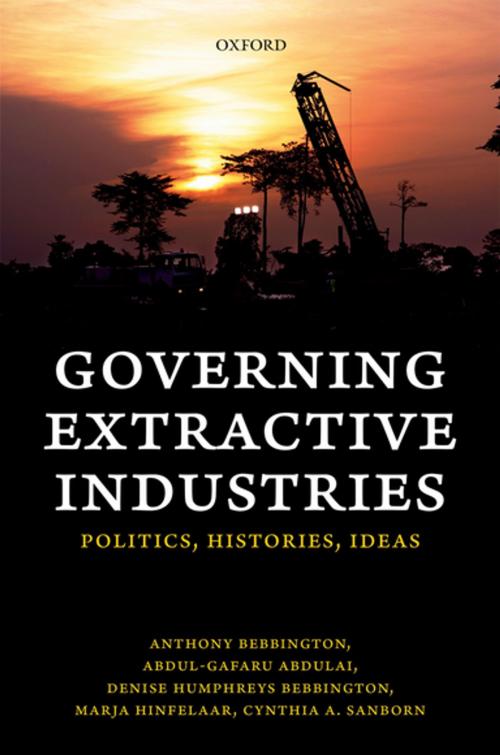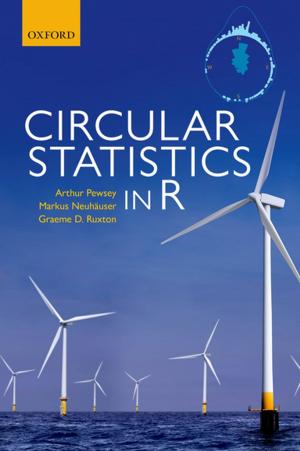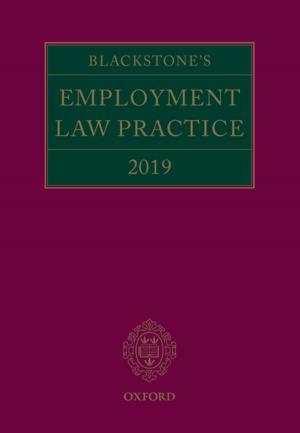Governing Extractive Industries
Politics, Histories, Ideas
Business & Finance, Industries & Professions, Industries, Economics| Author: | Anthony Bebbington, Abdul-Gafaru Abdulai, Denise Humphreys Bebbington, Marja Hinfelaar, Cynthia Sanborn | ISBN: | 9780192552891 |
| Publisher: | OUP Oxford | Publication: | June 21, 2018 |
| Imprint: | OUP Oxford | Language: | English |
| Author: | Anthony Bebbington, Abdul-Gafaru Abdulai, Denise Humphreys Bebbington, Marja Hinfelaar, Cynthia Sanborn |
| ISBN: | 9780192552891 |
| Publisher: | OUP Oxford |
| Publication: | June 21, 2018 |
| Imprint: | OUP Oxford |
| Language: | English |
This is an open access title available under the terms of a CC BY-NC-ND 4.0 International licence. It is free to read at Oxford Scholarship Online and offered as a free PDF download from OUP and selected open access locations. Proposals for more effective natural resource governance emphasize the importance of institutions and governance, but say less about the political conditions under which institutional change occurs. Governing Extractive Industries synthesizes findings regarding the political drivers of institutional change in extractive industry governance. It analyses resource governance from the late nineteenth century to the present in Bolivia, Ghana, Peru, and Zambia, focusing on the ways in which resource governance and national political settlements interact. The authors focus on the ways in which resource governance and national political settlements interact, exploring the nature of elite politics, the emergence of new political actors, forms of political contention, changing ideas regarding natural resources and development, the geography of natural resource deposits, and the influence of the transnational political economy of global commodity production.
This is an open access title available under the terms of a CC BY-NC-ND 4.0 International licence. It is free to read at Oxford Scholarship Online and offered as a free PDF download from OUP and selected open access locations. Proposals for more effective natural resource governance emphasize the importance of institutions and governance, but say less about the political conditions under which institutional change occurs. Governing Extractive Industries synthesizes findings regarding the political drivers of institutional change in extractive industry governance. It analyses resource governance from the late nineteenth century to the present in Bolivia, Ghana, Peru, and Zambia, focusing on the ways in which resource governance and national political settlements interact. The authors focus on the ways in which resource governance and national political settlements interact, exploring the nature of elite politics, the emergence of new political actors, forms of political contention, changing ideas regarding natural resources and development, the geography of natural resource deposits, and the influence of the transnational political economy of global commodity production.















